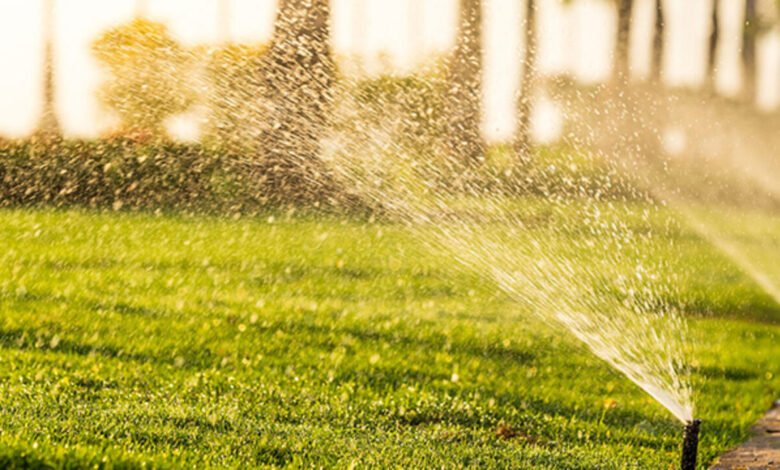Innovative Irrigation: Smart Watering Solutions for Sustainable Landscaping

As concerns about water conservation and sustainability continue to rise, innovative irrigation solutions are becoming essential for effective landscaping. Traditional watering methods can lead to water waste, while modern technologies and techniques allow homeowners and landscapers to use water more efficiently. This article explores innovative irrigation methods that promote sustainable landscaping, ensuring your garden thrives while minimizing environmental impact. For more information check out landscaping company in dubai
1. Understanding the Importance of Efficient Irrigation
Water Conservation
With growing populations and changing climates, water scarcity is becoming a significant issue worldwide. Efficient irrigation helps conserve water resources, reducing the overall demand and preserving this vital resource for future generations.
Environmental Impact
Overwatering can lead to runoff, soil erosion, and nutrient leaching, negatively affecting local ecosystems. Sustainable irrigation practices help maintain soil health and protect natural water sources from contamination.
Cost Savings
Implementing smart irrigation solutions not only conserves water but also reduces utility bills. Efficient watering techniques lead to healthier plants and a more vibrant landscape, maximizing your investment in your outdoor space.
2. Innovative Irrigation Techniques
Drip Irrigation
Drip irrigation is one of the most effective methods for delivering water directly to the root zones of plants. This system uses a network of tubing, emitters, and valves to supply a slow and steady flow of water, minimizing evaporation and runoff.
- Benefits: Reduces water waste, encourages deeper root growth, and can be easily customized for different plants and garden layouts.
- Installation: While initial setup may require some investment, the long-term water savings make it a cost-effective solution.
Smart Sprinkler Systems
Smart sprinkler systems utilize advanced technology to optimize watering schedules based on real-time weather data, soil moisture levels, and plant needs. These systems can be controlled via smartphone apps, allowing users to adjust settings remotely.
- Benefits: Automates watering, prevents over- or under-watering, and provides insights into water usage.
- Features: Many smart systems come with rain sensors, which automatically suspend watering during rainfall, further conserving water.
Soil Moisture Sensors
Soil moisture sensors monitor the moisture levels in the ground, providing data that informs irrigation practices. By installing these sensors, homeowners can ensure their plants receive the right amount of water without unnecessary waste.
- Benefits: Promotes healthy plant growth by preventing drought stress and overwatering.
- Implementation: Sensors can be integrated into existing irrigation systems or used as standalone devices for manual watering adjustments.
Rainwater Harvesting
Rainwater harvesting involves collecting and storing rainwater from roofs, driveways, and other surfaces for later use in irrigation. This sustainable practice reduces reliance on municipal water sources and utilizes natural precipitation.
- Benefits: Lowers water bills, decreases runoff, and provides a sustainable water source for landscaping.
- System Setup: Install rain barrels or cisterns to capture rainwater, which can then be connected to drip irrigation systems or used for hand watering.
3. Xeriscaping: Water-Wise Landscaping
Xeriscaping is a landscaping method designed to reduce or eliminate the need for supplemental water from irrigation. This approach emphasizes the use of drought-resistant plants, efficient irrigation practices, and strategic landscape design.
- Principles:
- Planning and Design: Create a landscape design that minimizes water use while maximizing aesthetic appeal.
- Soil Improvement: Use organic matter to improve soil structure and water retention.
- Plant Selection: Choose native or drought-tolerant plants that require less water and are adapted to local conditions.
4. Benefits of Innovative Irrigation
Sustainable Water Management
Adopting innovative irrigation practices contributes to sustainable water management by maximizing efficiency and minimizing waste. These practices help ensure that your landscape remains vibrant while using fewer resources.
Increased Plant Health
Proper irrigation techniques lead to healthier plants, as they receive the right amount of water at the right time. This results in stronger root systems, improved resilience against pests and diseases, and enhanced growth.
Enhanced Aesthetic Appeal
A well-maintained landscape not only looks good but also increases property value. Sustainable irrigation practices help maintain lush greenery and vibrant blooms, creating an inviting outdoor space.
5. Tips for Implementing Innovative Irrigation Solutions
- Assess Your Landscape Needs: Evaluate the water requirements of your plants and the characteristics of your soil to determine the best irrigation method for your landscape.
- Choose the Right System: Based on your assessment, select the most suitable irrigation system (drip, smart sprinklers, etc.) that aligns with your water conservation goals.
- Regular Maintenance: Ensure your irrigation systems are well-maintained to prevent leaks and clogs. Regularly check for signs of over- or under-watering and adjust settings as needed.
- Educate Yourself: Stay informed about new irrigation technologies and sustainable landscaping practices to continuously improve your garden’s water efficiency.
Conclusion
Innovative irrigation solutions play a vital role in sustainable landscaping, helping to conserve water while promoting healthy plant growth. By incorporating methods such as drip irrigation, smart sprinkler systems, soil moisture sensors, and rainwater harvesting, you can create a stunning outdoor space that thrives in harmony with nature. Adopting these practices not only benefits your garden but also contributes to a more sustainable future. Embrace the power of smart watering solutions and transform your landscape into a water-efficient oasis.
READ MORE : visual content market



